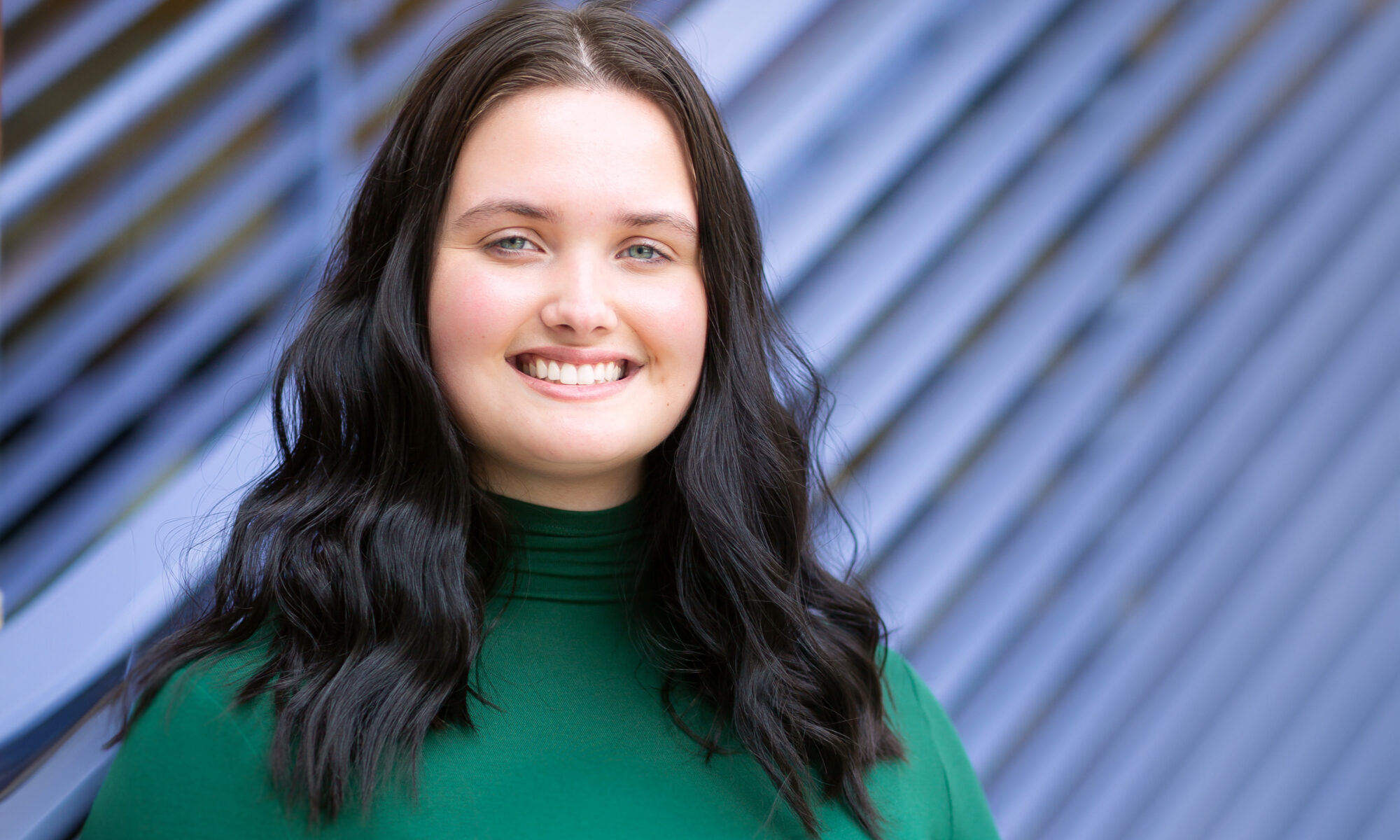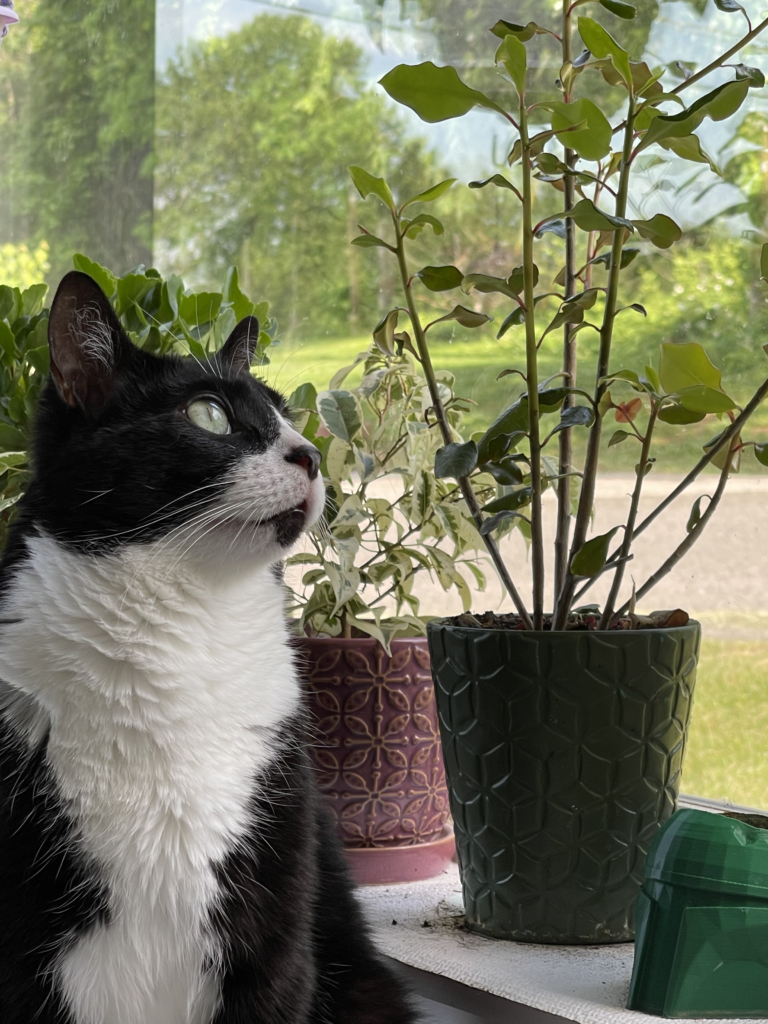
Born and raised in Michigan, Allyson Dekovich moved to Knoxville, Tennessee, in 2020 to join the Department of Entomology and Plant Pathology as a master’s student. Now a PhD student concentrating in bioinformatics, genomics, and molecular interactions, Dekovich studies the genetics of fire ants. Dekovich’s research focuses on understanding how species hybridize and adapt over time. With a passion for utilizing computational tools and conducting genetic research, Dekovich is shaping the future of pest management and evolutionary studies.
Q&A with Allyson Dekovich
Can you tell us a little bit about yourself?
I am originally from Sterling Heights, MI, a suburb of Detroit. I graduated high school in 2014 and received my bachelor’s in biology in 2017 from Oakland University (OU) in Rochester, MI. During my time at OU, I worked as a research assistant under Dr. Fabia Battistuzzi, focusing on a project that examined taxonomic discrepancies within Terrabacteria using a novel bioinformatic pipeline. Amid the COVID-19 pandemic, I began a concurrent master’s/doctoral program in the department in July 2020, working under Dr. DeWayne Shoemaker and Dr. Meg Staton. I completed my master’s in May 2022, where I worked on research centered on the population genetics of Solenopsis daguerrei, a social parasite of invasive fire ants. I am currently working towards completing my PhD, aiming for a graduation date of December 2025.
What is your concentration?
My concentration is in bioinformatics, genomics, and molecular interactions.
What is your current research question?
My current research question is exploring the genomic architecture behind species differences and local adaptation of invasive fire ants utilizing a naturally occurring hybrid zone.
What are the primary obstacles in answering this question?
I really enjoy the feeling of novelty that comes from working with others on such a diverse array of topics. I also love teaching and learning about new approaches in bioinformatics. The field is moving so quickly there are new techniques and software to pick up every week. It’s easy to miss out on new developments without a great team to collaborate with, and thankfully everyone I interact with teaches me something about their area of expertise.
Can you tell us about your research?
Solenopsis invicta and S. richteri are two fire ant species native to South America that were introduced into the USA nearly a century ago. Although S. richteripreceded S. invicta, the latter has displaced the former in most introduced areas and now is considered one of the worst insect pests in the USA. This species alone is responsible for an estimated $6 billion annually in agricultural/infrastructure damage and control efforts. Previous genetic studies found no evidence of hybridization between these species in sympatric areas in their native range. In contrast, the two species hybridize extensively in the introduced range, leading to the formation of a large hybrid zone in the southeastern United States. This significant difference in hybridization patterns in the two areas and the presence of a large hybrid zone provides us with unique opportunities to address several questions regarding the maintenance of species boundaries and underlying mechanisms of reproductive isolation in these species in South America, the factors that have led to the breakdown of reproductive isolation in the USA, and the signatures of rapid evolution and adaptation associated with extensive hybridization.
What academic class has been your favorite and why?
I have a few. My favorite academic classes at UT were centered around learning and applying computational tools to study biological questions, such as LFSC 507: Programming for Biological Data Analysis, MICRO 540: Genomics and Bioinformatics, and Dr. Staton’s EPP 622: Bioinformatics Applications. Although I worked in a bioinformatics lab as an undergraduate, my institution offered very few courses in this field, so I was eager to take as many as possible during my graduate studies!
How has your academic training at The University of Tennessee prepared you for a career in the industry?
During my graduate studies at UT, I have made a conscious effort to embrace a wide range of opportunities, especially ones that push me beyond my comfort zone. I’ve not only enhanced my core scientific skills, such as subject matter knowledge and technical/computational abilities, but also improved upon a range of “soft” skills, including communication, time management, problem-solving, and networking.
What do you consider to be one of your greatest academic achievements?
My greatest academic achievement so far has been publishing my first manuscript from my master’s research. I didn’t realize how complex the publishing process would be, and though it was challenging at times, I’m extremely proud to have shared my research with the broader scientific community. This experience also made me a better scientist by teaching me how to embrace constructive criticism and refine my work through perspectives I hadn’t previously considered.
What has been the highlight of your graduate school experience so far?
The highlight of my graduate school experience has been serving as an Explore BiGG Data graduate mentor for the past two years. Each year, for eight weeks, faculty and graduate mentors guide six female undergraduate scholars through a research project, which concludes with a symposium poster presentation. This position helped me make significant improvements in several areas, including effective teaching strategies, scientific communication, and mentorship/leadership. I also am deeply honored to have had the opportunity to mentor such remarkable cohorts of women and contribute, even in a small way, to their professional journeys.

What are your favorite things to do on campus?
I really enjoy spending time at the UT Gardens. It’s amazing to have such a great space on the AgCampus, and I love sharing it with everyone I know!
What extracurricular activities do you participate in?
Since I joined the department during the pandemic, I made a strong effort to get involved once restrictions were lifted. From 2021-2023, I served as the social chair for EPP’s Graduate Student Association, where I organized events for our students, including the notable “Gather in the Gardens” event in collaboration with Plant Sciences for Graduate and Professional Student Appreciation Week (GPSAW). I also served as Outreach Coordinator for WiSTAR3 (Women in Stem Advancing Research, Readiness, and Retention) from 2021-2022, organizing seminars to prepare women for the workplace, covering important topics like salary negotiations and gender dynamics in the workplace.

What are your favorite hobbies?
My favorite hobbies are exploring downtown Knoxville, reading (many) good books, yoga, and playing with my cat, Dolomite.
Any advice you would like to share with a prospective student?
My biggest advice is to prioritize time for yourself and what makes you happy. Graduate school can be both demanding and exhausting, so having hobbies or activities you enjoy outside of your work can significantly improve your overall experience. Once I embraced this, I found myself not only happier in my personal life, but that positivity also carried over into my work as a student.
